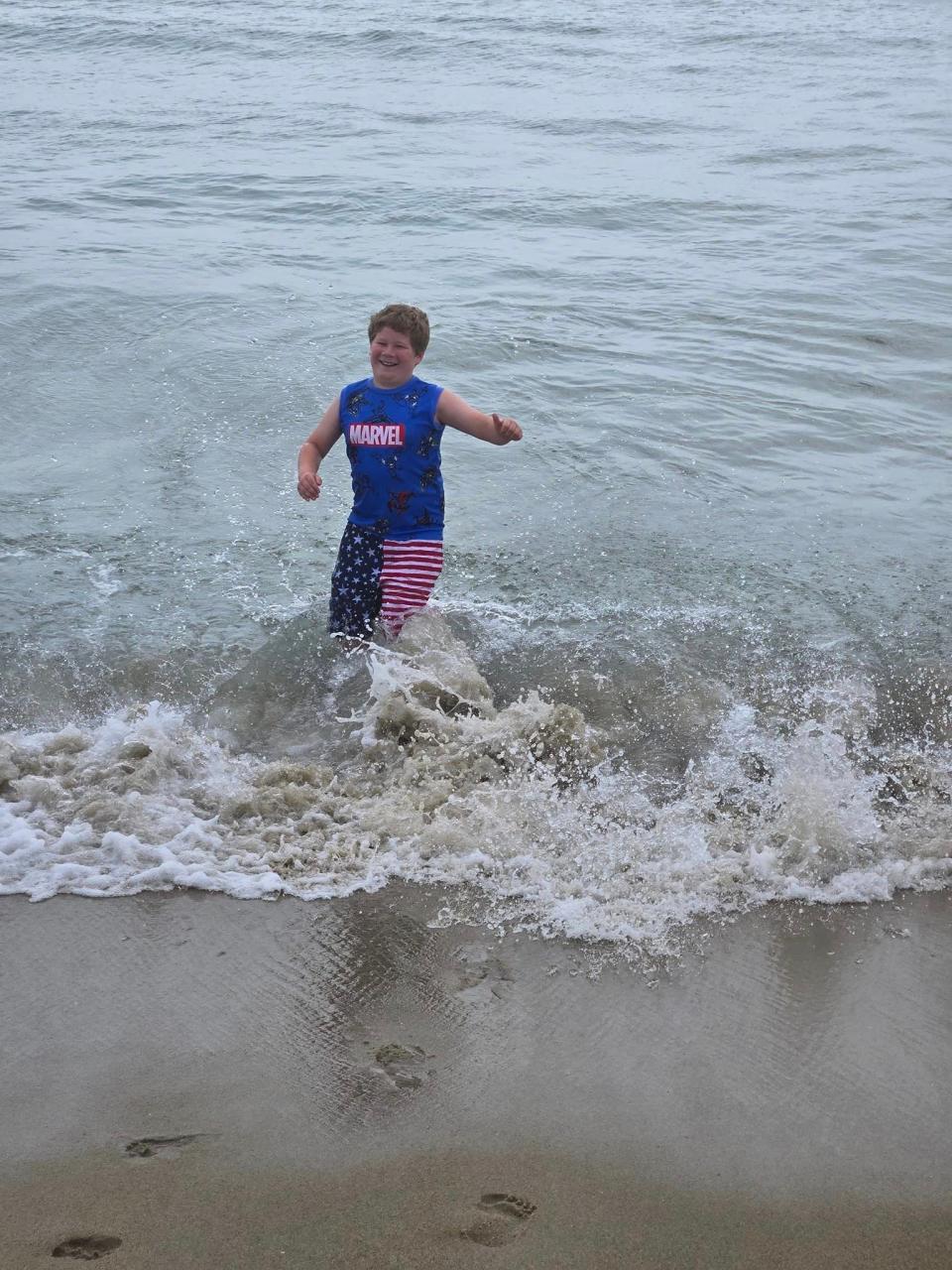PSA: You can get hypothermia at the beach on an 84 degree day. How to stay safe
Even on an 84 degree summer day, you can still get hypothermia on New England's beaches.
The Atlantic Ocean is just that cold.
Heather Cassani is warning about the dangers of hypothermia after her 10-year-old son collapsed on Hampton Beach over 4th of July weekend. Cassani has shared her story on Facebook and NBC's "TODAY" show, hoping to help other parents be informed as she had “no idea this could happen.”
"I've been going to the beach my whole life," she wrote. "I've never seen or heard this happen. The paramedics said they see it a lot especially the lifeguards.
Here's what to know.
What is hypothermia?

Hypothermia happens when your body temperature drops to below 95 degrees Fahrenheit because you can't produce heat faster than you are losing it.
Most commonly, it happens a very cold temperatures but it can happen " even at cool temperatures above 40 degrees Fahrenheit if a person becomes chilled from rain, sweat, or submersion in cold water," according tot he U.S. Forest Service.
They symptoms include the following:
Drowsiness
Weakness and loss of coordination
Pale and cold skin
Confusion
Uncontrollable shivering, although at extremely low body temperatures, shivering may stop
Slowed breathing or heart rate
More: Mom warns of hypothermia after son’s Hampton Beach scare: 'No idea this could happen'
How likely is hypothermia when you are swimming in the ocean?
Hampton Fire Chief Michael McMahon said hypothermia is a risk for anyone in water that’s colder than their body temperature.
“Water sucks the heat out of you much faster,” McMahon said. He said the temperature in the water at Hampton Beach will not get warmer than 70 degrees and that while he wouldn’t call hypothermia common in the summer, he said it’s “always a possibility.”
When the water is below 70 degrees Fahrenheit there's a risk, Dr. Christopher Kelly, chief of pediatric emergency medicine at New York-Presbyterian Brooklyn Methodist Hospital, told TODAY.com.
Kids are more at risk.
The further north you go up the coastline, the more likely the issue becomes. Ahead of Fourth of July weekend, the weather service issued a warning for Northern Maine, where water temps were only in the mid-40s.
"The cold temperatures can quickly cause hypothermia to anyone immersed in the water," the weather service said. "Anyone on boats or paddle craft should use extreme caution to avoid this threat."
What should you do if you start to notice hypothermia symptoms?
If your child starts seeming dizzy, confused, has slurred speech or any of the other symptoms, it's time to seek medical attention,
“You want to dry them off with warm — or at least dry — towels,” Kelly told Today.com. “And you want to keep their heads covered because kids lose a lot of heat from the top of their heads. Other than, it’s really just kind of that gentle warming until their body temperature comes up.”
To prevent it from happening, it's best to have kids take periodic breaks, even when they insist they don't need one.
This article originally appeared on The Providence Journal: Mom warns about hypothermia after son’s beach scare. How to prevent it

